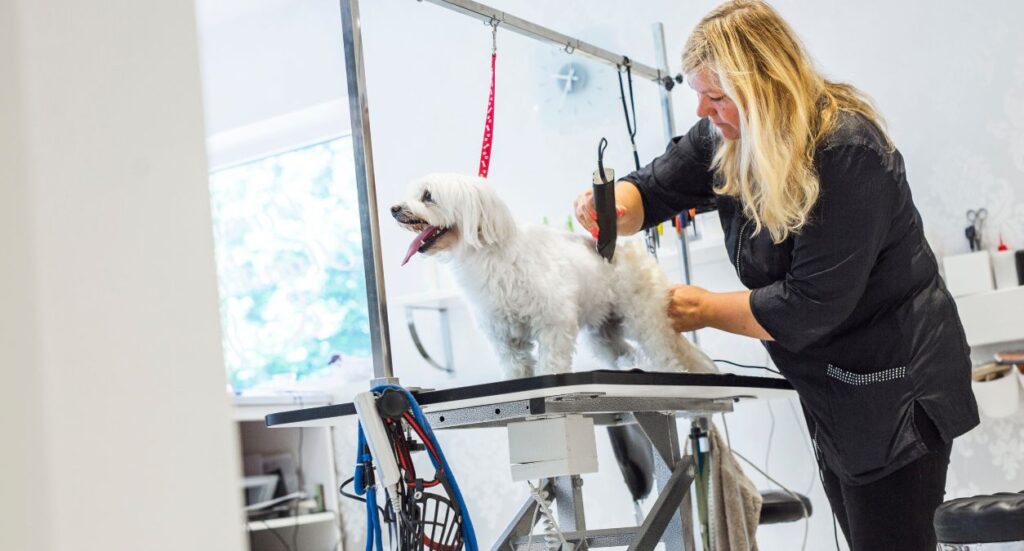Table of contents
Contributors
My main focus is managing the blog and product content for the Protectivity website ensuring everything aligns wi...
As a business owner, having insurance in place can give you the peace of mind that should the unexpected happen, you’ll have the support there to put wrong to right. When searching for business insurance, you may have come across the terms employers’ liability insurance and personal accident insurance. But what do these terms mean, and what is the difference between them?
Here, we’ll compare employers liability insurance vs personal accident insurance, so you can determine which type of insurance is right for your business.
What does employers’ liability insurance cover?
As soon as you become an employer, you’ll need to get employers liability insurance. In fact, it’s a legal requirement for most businesses in the UK to have (unless you operate alone or only employ family members, for example). If you don’t, you can be fined £2,500 every day you aren’t properly insured. Your policy must come from an authorised insurer and cover you for at least £5 million.
But what does employers’ liability insurance cover you for? It’s there to protect you if your employee claims compensation for an illness or injury they claim was caused by their work. Let’s say a worker was badly injured by tripping over a box left on the floor in the warehouse. Or an employee was electrocuted by faulty electrical equipment in the office. They could claim compensation against you for this happening, and the court could then order you to pay compensation for the injury, costs or other damages – which as you can expect, can be very expensive. That’s where employers’ liability insurance comes in – to cover the compensation payment and any legal costs if an employee claims compensation for a work-related injury or illness.
Like all types of insurance, employers’ liability insurance is there to protect you against the unexpected. No matter how careful you are at work, injuries do happen. If you don’t have employers’ liability insurance, it could significantly impact your business’ finances if you face a compensation claim.
What does personal accident insurance cover?
As the name suggests, personal accident insurance covers you if you suffer a serious injury or death following an accident. It’s there to protect you and your family against loss of income should you be unable to work, to help cover the cost of bills and other living expenses. It’s a type of personal insurance, similar to life insurance and income protection cover. With this in mind, personal accident insurance may be a type of cover you or your employee chooses to take out, to protect you/them financially against the unexpected.
Often, personal accident cover is included in life insurance and car insurance policies – so it may be worth you checking if you’re already covered before you take out another separate policy.
Most personal accident insurance policies will cover you for:
- An accident or injury that happens at work
- An injury caused by someone being violent towards you
- Road traffic accidents
- Permanent disability caused by an accident
- The loss of your body parts or the loss of the ability to use them fully
- Injuries caused by falls, slips and spillages
Pros and cons of employers’ liability insurance
When exploring your insurance options as a business owner, it’s important you know exactly what you’re covered for. Here, we’ll dive into the potential pros and cons of employers’ liability insurance:
Pros
- Provides legal and financial protection should your employee or ex-employee claim compensation against you for an injury that happened at work
- Helps cover the costs of employee injuries or illnesses
- Without it, you could face a daily fine – so it’s a good idea to take out the insurance as soon as possible
Cons
- Premiums can be expensive – especially for those working in hazardous environments that are higher-risk
- Like many types of insurance, the claims process can be complex and time-consuming
- For independent contractors or those who are self-employed, coverage can be limited
While there are potential cons to Employers Liability Insurance, it is a legal requirement to have so it’s important you have it in place.
Pros and cons of personal accident insurance
Personal accident insurance can offer you the peace of mind that should you suffer an injury or accident, you’ll be supported. Here are some potential advantages and disadvantages of personal accident insurance for you to consider:
Pros
- Provides financial protection should you suffer an accidental injury, disability or death
- Can offer you peace of mind if you work in a high-risk job
- If you’re no longer able to work due to injury, personal accident insurance can provide a lump-sum payment or ongoing income to support you and your dependents
Cons
- You won’t be covered for chronic conditions, illnesses, viruses or diseases as these aren’t caused by an accident
- You won’t be covered for conditions that develop over time and aren’t caused by a single accident, such as gradual hearing loss
- Premiums can be expensive, particularly if you work in a high-risk environment or participate in high-risk activities
Which insurance is right for your business?
Which type of insurance is right for your business will depend on the level of risk for you and your employees, and legal requirements too.
As a business owner, you’ll need to ensure you have employers’ liability insurance in place as soon as you become an employer. It’s a legal requirement for most businesses in the UK who have employees, to protect you against the cost of compensation claims should an employee have an injury or work-related illness. Without it, you could face a fine of £2,500 for every day you aren’t insured. Certain businesses are exempt from needing employers’ liability insurance, such as those with no employees or family businesses who only employ family members.
As for personal accident insurance, it’s down to your employee if they choose to take out a policy. It’s designed to give your employees peace of mind – so should they suffer an accidental injury, disability or death – they’ll be financially protected. This also means if they were to die due to an accident, their family will be given a payout if they make a claim.
So, which type of insurance is right for your business depends on the nature of your business. Employers’ liability insurance is a legal requirement for most UK businesses. Whereas, personal accident insurance is there to protect your employees should the unexpected happen – particularly if they work in high-risk conditions.
Speak to a professional
As a business owner, having the right insurance can give you reassurance that should something go wrong, you and your employees will be taken care of. Get a quote for small business insurance with Protectivity today, for the peace of mind you deserve.
*Disclaimer – This blog has been created as general information and should not be taken as advice. Make sure you have the correct level of insurance for your requirements and always review policy documentation. Information is factually accurate at the time of publishing but may have become out of date.
Last updated by

















